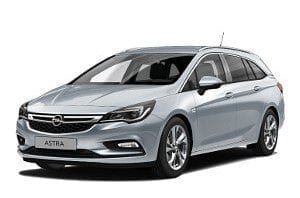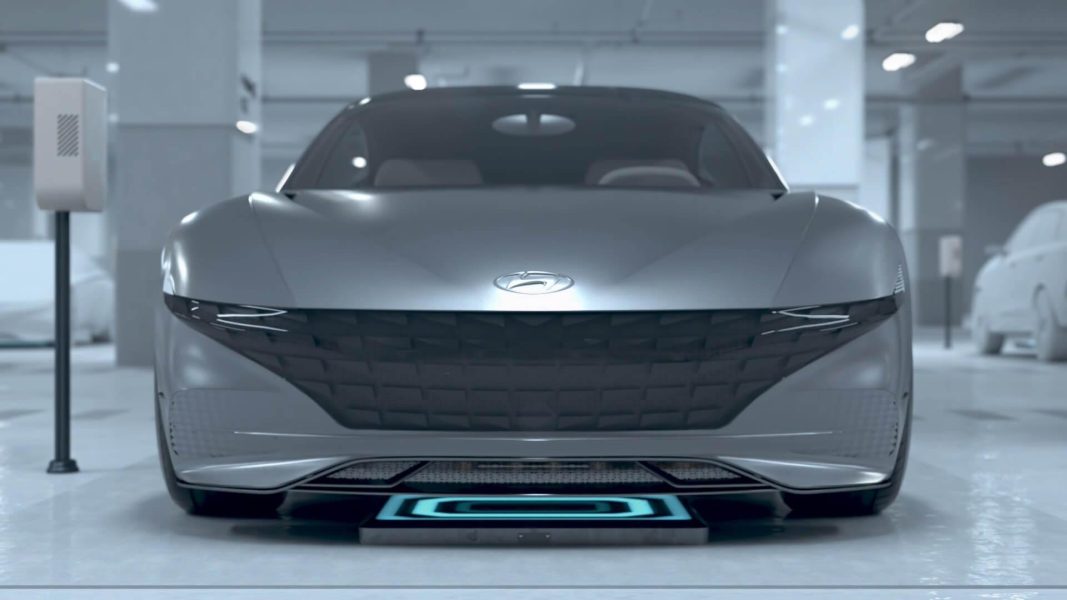
Can electric cars be charged wirelessly?

Experiments with inductive power transmission date back to 1894.
Aside from the umbilical type, which seems like an absolute must, cords and cables tend to be a nuisance, either getting tangled, frayed and refusing to work properly, or giving you the chance to trip over something.
The invention of the cordless phone charger has been a godsend for cable haters, and now electric vehicles - often referred to as smartphones on wheels - will benefit from a similar technology that allows phones to charge wirelessly.
Wireless charging for electric vehicles, also known as "inductive charging", is a system that uses electromagnetic induction to wirelessly transfer power, while the vehicle must be near a charging station or inductive pad to receive an electric charge.
Electric vehicles are usually charged with a cable that can receive either alternating current (AC) or direct current (DC) electricity.
Level 1 charging is typically done through a 2.4 to 3.7 kW household AC outlet, which equates to five to 16 hours to fully charge the battery (an hour of charging will drive you 10–20 km). travel distance).
Level 2 charging is done with a 7kW AC home or public charger, which equates to 2-5 hours to fully charge the battery (an hour of charging will get you 30-45km). .
Level 3 charging is done with a DC fast charger at a public EV battery charging station. This provides about 11-22 kW of power, which equates to 20-60 minutes to fully charge the battery (an hour of charging will get you 250-300 km).
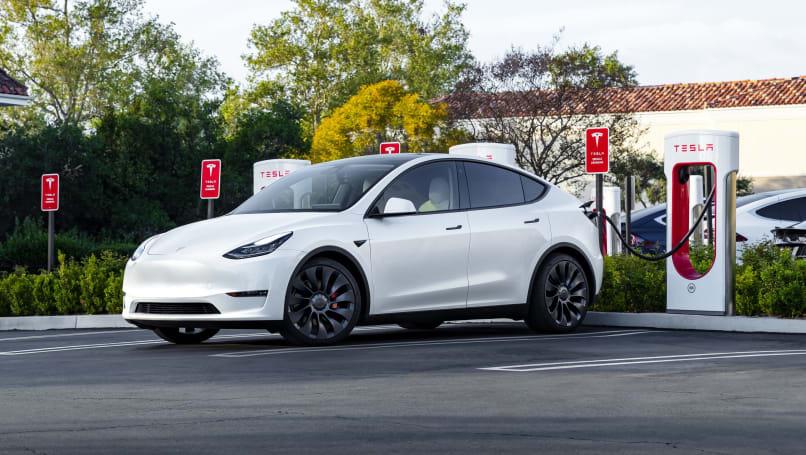 Charging of electric vehicles is usually done with a cable.
Charging of electric vehicles is usually done with a cable.
Level 4 is ultra-fast charging at a public DC charging station for electric vehicles. This provides about 120 kW of power, which corresponds to 20-40 minutes to fully charge the battery (an hour of charging will give you 400-500 km of driving).
Public charging is also available with ultra-fast charging, where the 350 kW power can charge the battery in 10-15 minutes and provide a staggering range of 1000 km per hour.
All of the above methods require you to plug in a rather bulky charging cable - not ideal for older people or people with disabilities - with the main advantage of wireless charging technology being that you don't even have to get out of your electric car.
History of wireless charging
Experiments with inductive power transfer date back to 1894, but modern advances only really began with the formation of the Wireless Power Consortium (WPC) in 2008, and a number of other wireless charging organizations have since formed.
Current applications
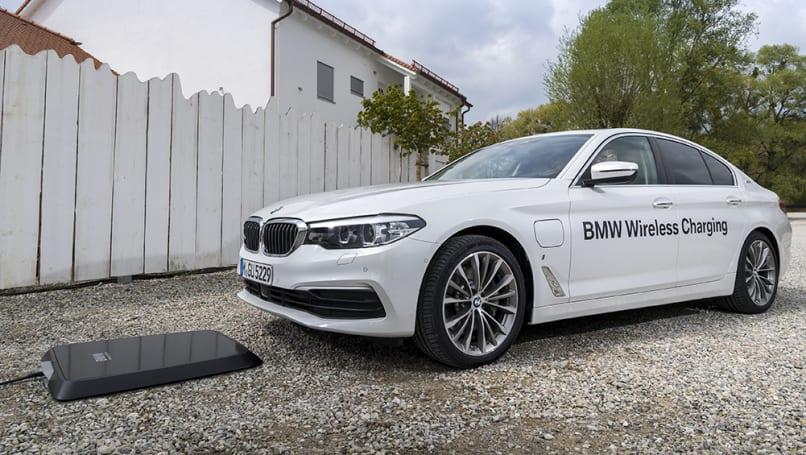 The BMW 530e iPerformance plug-in hybrid sedan is the first model to feature wireless charging technology.
The BMW 530e iPerformance plug-in hybrid sedan is the first model to feature wireless charging technology.
High power inductive charging, which includes wireless charging of batteries in excess of 1kW, is being used for electric vehicles, although power levels can reach 300kW or more.
While car manufacturers and others have been developing wireless charging technology for vehicles over the past few decades, the first notable rollout of it came when BMW launched an inductive charging pilot program in Germany in 2018 (expanding to the US in 2019) for its vehicle. The 530e Plug-in Hybrid Electric Vehicle (PHEV) won the 2020 Green Automotive Technology of the Year award from the auto giants.
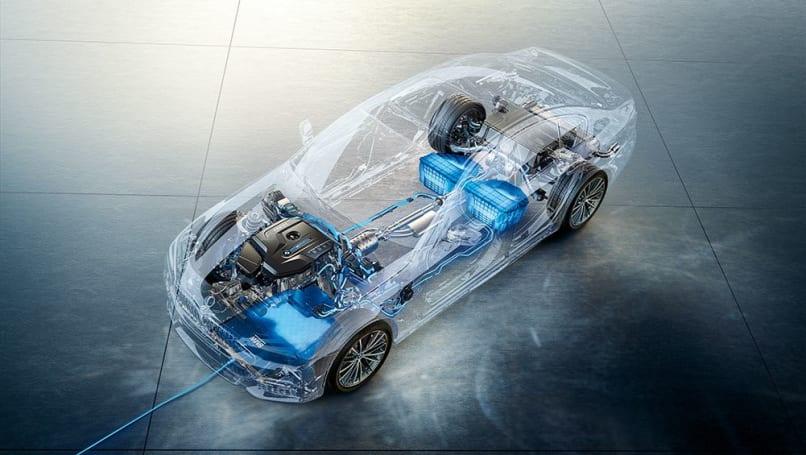 BMW has a receiver (“CarPad”) on the underside of the car that has a charging power of 3.2kW.
BMW has a receiver (“CarPad”) on the underside of the car that has a charging power of 3.2kW.
British company Char.gy, which has set up a network of lamppost charging points using conventional cables across the UK, is currently testing 10 wireless chargers installed in parking spaces in Buckinghamshire, with wireless charging of electric vehicles achieved by parking a car. above the inductive charging pad.
The only minor issue is that none of today's electric vehicles have the inductive chargers needed for wireless charging, meaning that an upgrade is required to take advantage of the technology.
This will change over time, of course: the 2022 Genesis GV60 will have wireless charging hardware, for example, but only for the Korean market, at least for now. Genesis claims that the 77.4 kWh SUV battery can be fully charged in six hours, rather than 10 hours from a conventional wall charger.
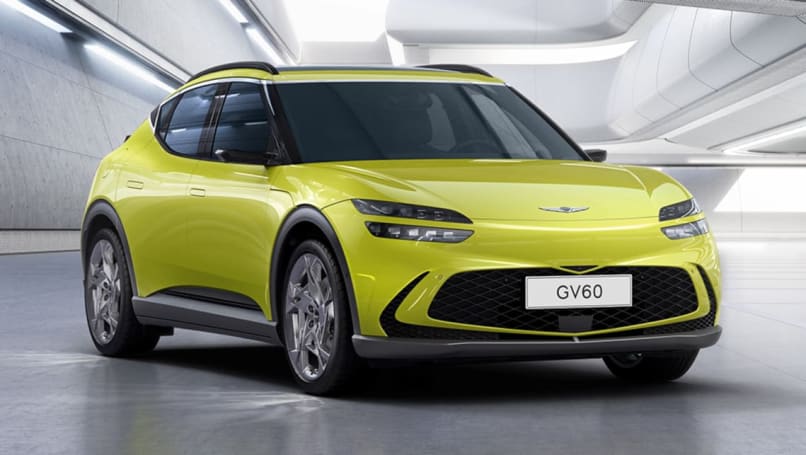 The Genesis GV60 is equipped with wireless charging hardware.
The Genesis GV60 is equipped with wireless charging hardware.
American charging company WiTricity is behind the hardware, and Genesis GV60 drivers will have to buy a charging pad to mount it on the floor of their garage at home.
The American company Plugless Power will also introduce an inductive electric vehicle charger in 2022 that can transfer power over a distance of 30 cm, a handy feature for taller vehicles such as SUVs. Installing a charger on an electric vehicle and installing charging equipment at home will cost $3,500.
The most exciting technology under development, however, is safe wireless charging while driving, meaning you don't have to stop your electric car to charge, let alone get out of it.
This is achieved by embedding inductive chargers into the road an electric vehicle travels on, with the extremely futuristic technology currently being tested in countries such as the US, Israel and Norway and sure to be a boon when the era of autonomous driving arrives.
